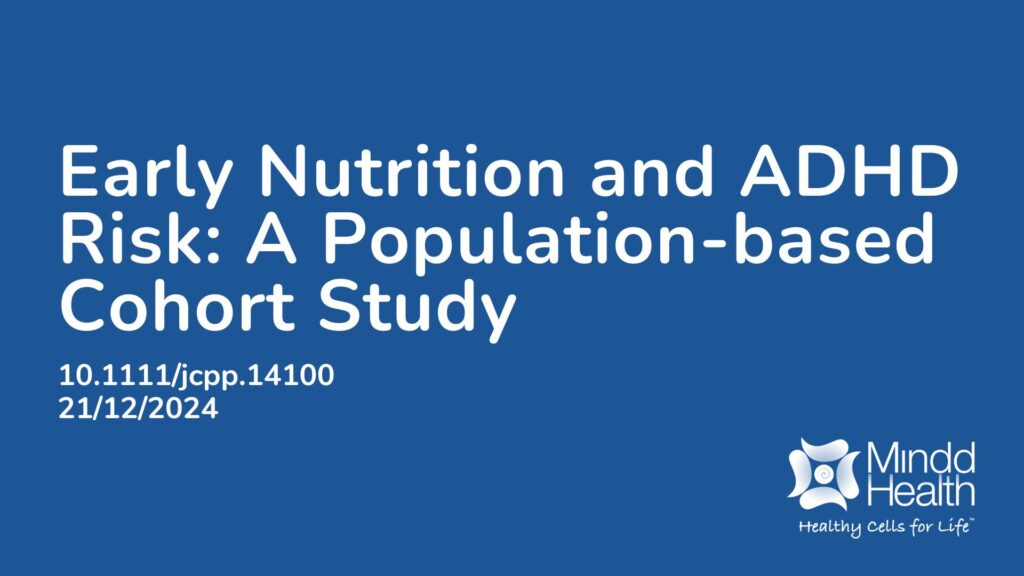Summary:
Attention-deficit/hyperactivity disorder (ADHD) is a common childhood neuro-developmental condition characterised by inattention, hyperactivity, and impulsivity. Global prevalence in children is estimated between 2.2% and 7.2%, with increasing trends observed in many countries. While the precise cause remains unclear, known risk factors include genetic and neurological influences, prenatal exposures, birth complications, family environment, and early nutrition such as breastfeeding. Exclusive breastfeeding for the first six months is globally recommended to support infant development. Some studies suggest a protective link between breastfeeding and reduced ADHD risk, although findings are inconsistent. Evidence on how the duration or exclusivity of breastfeeding impacts ADHD risk is also still inconclusive. This study used data from the Taiwan Birth Cohort Study, which followed children from six months to five years of age, to investigate how infant feeding practices relate to ADHD development. A total of 19,721 children were included, and 207 were diagnosed with ADHD during the follow-up. On average, breastfeeding lasted around two months. Analysis showed that rice-based complementary feeding, which provides additional vitamins and minerals such as iron from 6 months, in addition to breastfeeding, was associated with a reduced risk of ADHD. Several variables were significantly associated with higher ADHD risk, including male sex, lower income, low birth weight, certain maternal and child health conditions, and advanced maternal age. In conclusion, early complementary feeding may have a protective role in reducing ADHD risk, whereas the effect of breastfeeding alone appeared limited when other risk factors are considered. Further research with larger sample sizes and longer follow-up is needed to confirm these findings.
Abstract:
Background: Infant feeding plays a vital role in neurodevelopment, and a lack of breastfeeding and complementary feeding may increase the risk of developing attention‐deficit/hyperactivity disorder (ADHD). However, empirical evidence on this relationship remains uncertain, as most studies are based on cross‐sectional designs. Therefore, this study aimed to examine this temporal relationship using longitudinal data from a birth cohort. Methods: A retrospective cohort study was conducted using data from Wave I (starting at 6 months old, 2005–2006) to Wave IV (up to 5 years old, 2010–2011) of the Taiwan Birth Cohort Study. A total of 19,721 pairs completed the four‐wave interviews and provided information on infant feeding, medical history, ADHD occurrence, and sociodemographic characteristics. An extended Cox model with time‐dependent covariates was used to examine this association. Results: In total, 207 infants developed ADHD during the 54‐month observational period, with an estimated cumulative incidence of 5.56 per 1,000 person‐years. The average breastfeeding duration was approximately 2 months. With complementary feeding, rice solid food (HR = 0.73) was found to be a protective factor against developing ADHD. Significantly associated factors for increasing ADHD risk included males, lower family income, low birth weight, maternal weight, advanced maternal age, child gastrointestinal disease, child seizures, maternal heart disease, and paternal diabetes mellitus. Conclusions: Complementary feeding within 6 months is important to protect infants from developing ADHD. The beneficial effect of breastfeeding within 6 months was not observed while controlling for other risk factors. However, owing to the limitation of a smaller number of ADHD cases, further studies should rely on larger observational periods.
Article Publication Date: 21/12/2024
DOI: 10.1111/jcpp.14100



